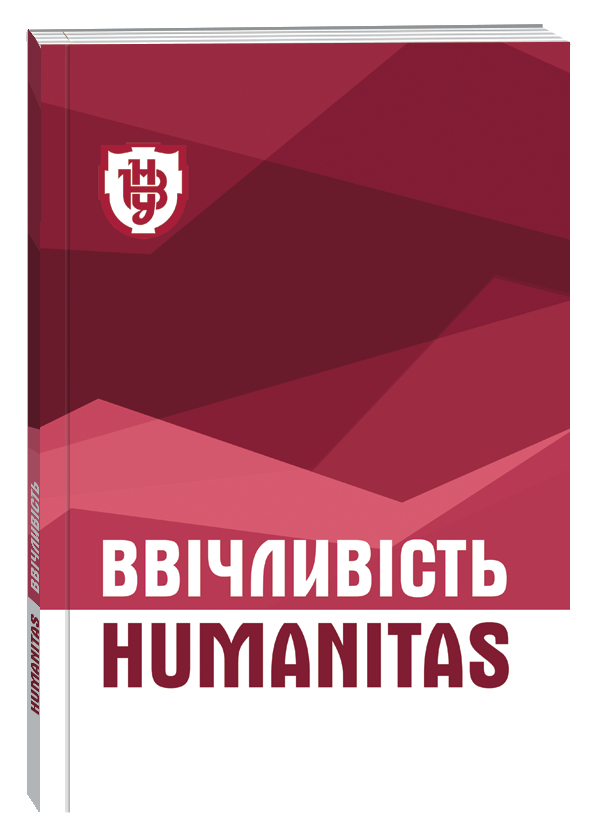NON-STANDARD FORMS OF PRACTICAL TO TAKE AT THE TRAINING OF SOCIAL PRACTITIONERS
DOI:
https://doi.org/10.32782/humanitas/2023.2.19Keywords:
social worker, practical training, social integration, sensory balls, sensory integration, tactile sensationsAbstract
The article is devoted to the issue of improving the quality of education and the level of development of students' professional competencies due to non-standard forms of practical classes. The author points out the peculiarities of the use of traditional and non-traditional forms of practical classes: with regard to the conceptual basis of practical classes, traditional forms have disadvantages, which consist in subject-object interaction in the "teacher-student of higher education" system, as well as in the isolation of participants from the possibility of active communication. Non-traditional forms of practical classes in this context have advantages due to subject-subjective positions in the "teacher-student of higher education" system, the possibility of communicative interactive dialogue between participants in the educational process; regarding the content part, both traditional and non-traditional forms of practical classes have only advantages, however, non-traditional forms are aimed not only at the formation of knowledge, skills and abilities, but also at the development of the creative potential of the future social worker; regarding the organization of the educational process – the disadvantages of traditional forms of practical classes are considered to be a low level of independence, a passive cognitive position of students and the lack of an opportunity to think critically. But among the advantages of non-traditional forms of practical classes, the emphasis is on a deeper study of the educational material; regarding the activity of the teacher during the practical session (management of the process of assimilation of the material and diagnosis of the results) – when using traditional forms of practical sessions, weak feedback is considered a disadvantage, and predictability and controllability of the results of the educational activities of future social workers are considered advantages. Conversely, the advantages of non-traditional forms of practical classes are active feedback, while the disadvantages are difficulties in forecasting and diagnosing the results of educational activities. The publication provides an author's example of the use of a non-traditional form of practical training when studying the issue of the importance of social and sensory integration in human life.
References
Бенера В. Є. Практична підготовка соціальних працівників у вищій школі республіки Польща : колективна монографія / В. Є. Бенера, Ж. М. Шевченко. Тернопіль : ФОП Паляниця В. А., 2020. 436 с.
Водяна О. В. Професійна підготовка майбутніх соціальних працівників до соціального супроводу сімей, в яких перебувають діти під опікою : автореф. дис. ... канд. пед. наук: 13.00.04 / О. В. Водяна ; Терноп. нац. пед. ун-т ім. Володимира Гнатюка. Тернопіль, 2016. 20 с.
Звєрєва І. Д. Енциклопедія для фахівців соціальної сфери / [Алєксєєнко Т. Ф. та ін.] ; за заг. ред. І. Д. Звєрєвої ; М-во освіти і науки, молоді та спорту України, Ін-т проблем виховання НАПН України [та ін.]. Київ ; Сімферополь : Універсум, 2012. 535 c.
Коляда Н. М., Кравченко О. О. Нормативні та прикладні аспекти забезпечення якості підготовки соціальних працівників. Вісник Академії праці, соціальних відносин і туризму. 2017. № 3/ С. 68–78.
Кочубей Н. Підготовка майбутніх соціальних працівників до роботи з різними групами клієнтів: з досвіду роботи. Соціальна робота та соціальна освіта. 2(9). 2022. С. 262–21.
Мирошніченко Н. О. Професійна підготовка соціальних працівників до інтеграціі дітей-інвалідів у соціум. Серія 11. Соціальна робота. Соціальна педагогіка. 2019. С. 36–43.
Поліщук В. Формування соціальної відповідальності у майбутніх фахівців соціальної роботи: системний підхід. Соціальна робота та соціальна освіта. 2022. № 2(9). С. 281–288.
Савельчук І., Котикова О. Інновації як чинник якісних змін у соціальній роботі та соціальній освіті. Соціальна робота та соціальна освіта. 2022. № 2(9). С. 29–296.
Технології соціальної роботи : навч. посібник / уклад. Н. М. Коляда, Н. В. Левченко. Умань : Візаві, 2018. 338 с.
Шеплякова І. О. Воркшоп як інноваційна форма організації навчання майбутніх соціальних працівників. Взаємозв’язок освіти, науки та виробництва – основа ефективного навчального процесу : матеріали конференції. 2020. С. 266–269.







